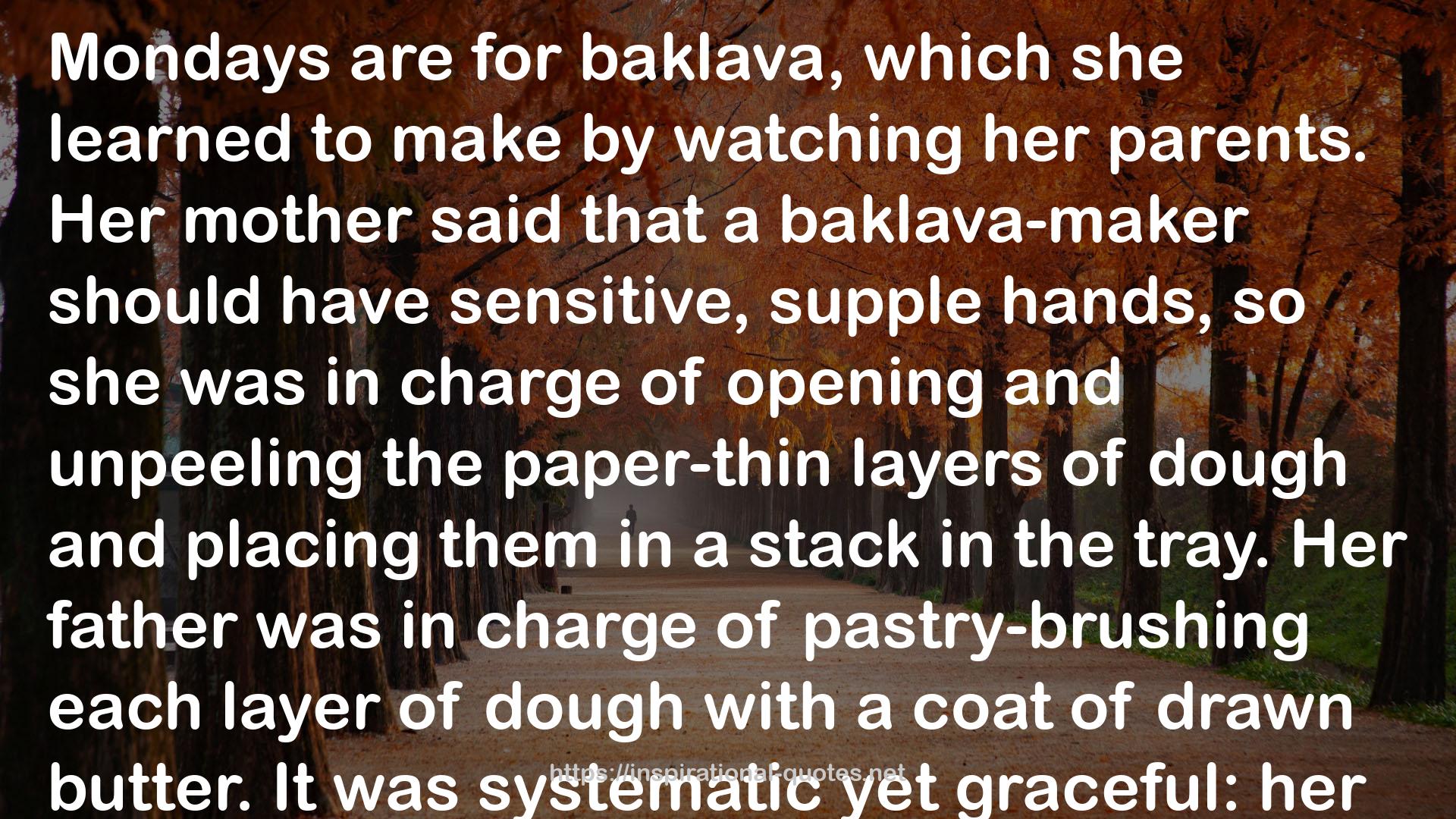" Mondays are for baklava, which she learned to make by watching her parents. Her mother said that a baklava-maker should have sensitive, supple hands, so she was in charge of opening and unpeeling the paper-thin layers of dough and placing them in a stack in the tray. Her father was in charge of pastry-brushing each layer of dough with a coat of drawn butter. It was systematic yet graceful: her mother carefully unpeeling each layer and placing them in the tray where Sirine's father painted them. It was important to move quickly so that the unbuttered layers didn't dry out and start to fall apart. This was one of the ways that Sirine learned how her parents loved each other- their concerted movements like a dance; they swam together through the round arcs of her mother's arms and her father's tender strokes. Sirine was proud when they let her paint a layer, prouder when she was able to pick up one of the translucent sheets and transport it to the tray- light as raw silk, fragile as a veil.
On Tuesday morning, however, Sirine has overslept. She's late to work and won't have enough time to finish preparing the baklava before starting breakfast. She could skip a day of the desserts and serve the customers ice cream and figs or coconut cookies and butter cake from the Iranian Shusha Bakery two doors down. But the baklava is important- it cheers the students up. They close their eyes when they bite into its crackling layers, all lightness and scent of orange blossoms.
And Sirine feels unsettled when she tries to begin breakfast without preparing the baklava first; she can't find her place in things. So finally she shoves the breakfast ingredients aside and pulls out the baklava tray with no idea of how she'll find the time to finish it, just thinking: sugar, cinnamon, chopped walnuts, clarified butter, filo dough.... "
― Diana Abu-Jaber , Crescent
